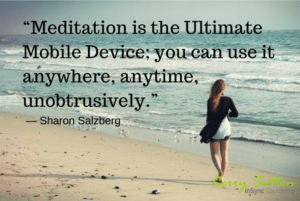“Each of the four times I have received a life-altering diagnosis, I have felt like a healthy person who has been accidentally drop-kicked into a foreign country:
I don’t know the language, the culture is unfamiliar,
I have no idea what is expected of me, I have no map,
and I desperately want to find my way home.”
~ Jessie Gruman
The first few days after a scary diagnosis affects everyone differently. You or your loved one may feel paralysed with shock, fearful, angry, sad, helplessness… the list goes on. In her book AfterShock Jessie Gruman shares from hers and others’ personal experiences what you can do to cope with the devastating news. Lets take a brief look inside:
♥ THE FIRST 48 HOURS AFTER DIAGNOSIS
In shock (CHAPTER 1) – There is no “normal” response to such distressing news. Your thoughts might be racing, or fixated on one thing. You may cry, be angry or feel the need to withdraw from others. You may feel agitated and restless or completely drained of energy.
In this first chapter Jessie identifies some common emotional, cognitive and physical responses. Some of these may be familiar to you:
- Sadness
- Despair
- Irritation
- Rage
- Apathy
- Guilt
- Shame
- Giddiness
- Mood swings
- Withdrawal
- Confusion
- Forgetfulness
- Difficult concentrating
- Agitation
- Ridged thinking / difficult incorporating new knowledge
- Intrusive or repetitive thoughts
- Crying
- Appetite disruption
- Pain: headache, stomachache
- Heightened sensitivity to normal physical complaints
- Lethargy
- Agitation and hyperactivity
- Sleep distrubances
Remember: You will not always feel this way. Jessie Gruman
What you can do:
♦ Don’t pretend everything is normal. This is a crisis!
♦ Cancel work and social engagements for the next 48 hours
♦ Tell family and friends if you need them to be with you or if you need to be alone
♦ You do not owe anyone an explanation. If you feel overwhelmed with grief in the company of others excuse yourself if you need to.
♦ Talk if you want to, cry if you feel like it.
♦ Write lists instead of trying to remember things
♦ Don’t rush to sort out a treatment plan. Instead write down questions that come up for you
♦ Don’t search for information online if it is frightening or overwhelming you
♦ Ensure you eat and stay hydrated, even you don’t feel like it
♦ Get us much sleep and rest as you can
♦ Exercise, if you feel like it. Go for a walk if you feel agitated
♦ Breathe. Take a few deep breaths when you remember
♥ OVER THE FOLLOWING FEW WEEKS
Find the information you need (CHAPTER 2) – During this time you need to learn the basics of your condition, probable causes, and what can be done to cure or manage its progression. Jessie outlines four reasons you need to know these basic facts:
1. It’s your life. Even though you might want others to make decisions for you, only you will know what you value most. It’s you who will live with the consequences of those decisions. So you need enough information to weigh the choices.
2. Understand whats going on in your body. This will help you to make sense of what you need to do. E.g. required tests and medications.
3. You need to know what options are available. This is because there is often a lag between what doctors practice and the medical knowledge available.
4. Keep a vigilant eye on your care. You and your loved ones will need to actively watch to ensure drugs received are correct, doses are correct, test results have been seen by your doctors, and allergies etc are known about.
A little bit of knowledge helps ground yourself so you can weather the storm that illness brings. ~ Jessie Gruman
Questions to get started – Jessie suggests finding out the answers to these basic questions. You will then be more ready to learn from your doctor about how your condition is affecting you specifically:
♦ What is the name of the condition?
♦ How does this disease or condition affect the body?
♦ What causes this condition?
♦ What causes this condition to progress or get worse?
♦ Find out the typical time course for its progression.
♦ What tests and procedures are commonly used to determine the course of treatment?
♦ What treatments are available for this condition?
♦ Find out the effect each treatment has, generally? Does it cure this condition? How often? Does it slow down its progression? How much?
♦ What complications and side effects are common–and uncommon–with each treatment?
♥ LOOK AFTER YOURSELF
Find a little relief (CHAPTER 9) – After the initial shock of your diagnosis has past your aim is to “find some relief from the constant stress, so you can gather the strength you need to participate in your treatments and in your life”. These include:
♦ Maintaining routines. Maintaining the rhythms of your normal home-life can provide some relief from the unpredictability and uncertainty you are experiencing. You might be able to preserve most of your normal routines or just one.
♦ Seeking distractions. This might be funny movies, comedy shows, reading and writing or listening to music.
♦ Spending time with friends. They are usually more removed from your day to day experience than family members, and are often willing to treat you the same as before your diagnosis.
♦ Relaxing physically. Consider how you used to relax prior to your diagnosis or try something new. This might be massage, dancing, the gym or walking.
♦ Exploring or affirming spirituality. A distressing diagnosis can highlight a need for meaning in life and the difficult possibility of death. Many people find strength in their faith.
♦ Talking to others facing a similar challenge. For some people hearing from those who have gone before them can help with knowing what to expect and how they might cope.
♦ Making use of complementary medicine. These might include acupuncture, Chinese herbal medicine, integrative doctors, nutritionists, meditation and/or yoga.
♦ Seeking counselling. For many the emotional affects of diagnosis can be difficult to talk about with family and friends. There is a need to not appear weak or burden them with fears about the future. If this is how you are feeling seek out a counsellor who understands the turmoil and urgency you are experiencing. A counsellor who will provide a safe space to talk about how its is affecting you, and help you work through the options you are presented with.
Sometimes we need someone to simply be there…Not to fix anything or do anything in particular, but just to let us feel we are supported and cared about. ~ Unknown
♥ ♥ ♥ This book is a wonderful companion for anyone experiencing the emotional, physical and mental rollercoaster after serious diagnosis. There is also a FREE APP, offering a basic roadmap through the first few days and weeks, to help you regain a bit of control during this turbulent time. Available for downloading in Apple’s App Store.
Lets Talk
If you are feeling overwhelmed and /or confused after a life-altering diagnosis, then please call me for a Free 15 minute consultation. We can talk about what is going on for you and I can answer any questions you might have. If I am with a client I will get back to you as soon as I can.
Online counselling available in the privacy of your own home.
Lets Talk
If you are feeling overwhelmed and /or confused after a life-altering diagnosis, then please call me for a Free 15 minute consultation. We can talk about what is going on for you and I can answer any questions you might have. If I am with a client I will get back to you as soon as I can.
Online counselling available in the privacy of your own home.
or if you are ready to book now




